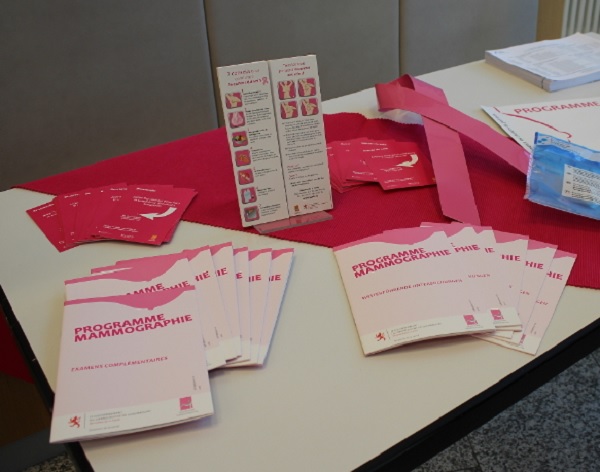 Credit: File photo/MSAN
Credit: File photo/MSAN
The Directorate of Health and the Luxembourg Institute of Health's Cancer Epidemiology and Prevention Group (Epican Group) have published the first evaluation of the national organised breast cancer screening programme, the “Mammography Programme” (Programme Mammographie - PM), using a newly developed methodology linking data from the National Cancer Registry with the PM.
The report highlighted that beyond its organisational quality, the PM is effective in detecting breast cancer at earlier stages compared to cases diagnosed outside the programme. This underscores the importance of the PM in early detection, which enhances treatment outcomes. The analysis identified strengths while also pointing to areas for improvement to maximise the programme's impact on its target population.
According to Dr Claudine Backes, Scientific Director of the National Cancer Registry and head of the Epican Group, who led the report's development: “By developing this new methodology that links data from the National Cancer Registry to the Mammography Programme, Luxembourg now joins a select group of European countries capable of evaluating breast cancer screening effectiveness at this level. We hope the results of this report will be used to inform public health actions and future evaluations to detect breast cancer as early as possible in Luxembourg. This could improve cancer management, leading to better prognoses, less invasive and costly treatments, improved quality of life and a reduction in associated mortality.” Dr Backes underscored the report's importance in aligning Luxembourg with international standards for breast cancer screening effectiveness.
Between 2011 and 2018, participation rates in the PM exceeded those reported by neighbouring countries but remained below European recommendations. However, participation has steadily declined over time, a trend requiring further investigation, according to the authorities.
The programme's double-reading process, wherein each mammogram is reviewed by two independent radiologists, detects one in five breast cancers that would otherwise be missed. This process not only enhances cancer detection but also reduces false positives, minimising the number of additional procedures (e.g., MRIs or biopsies). As a result, it reduces costs and alleviates emotional stress for participants while shortening the waiting period between mammography and confirmation of results.
Data analysis demonstrated the PM's effectiveness in detecting cancers at earlier stages, with smaller tumour sizes in younger women and fewer cases of lymph node involvement compared to cancers detected outside the programme. In most cases, tumours identified through the programme were still localised and without metastases, facilitating treatment.
This first report, the result of collaboration between the National Cancer Registry and the coordination centre for organised cancer screening programmes, has strengthened both national and international partnerships in screening programme evaluation. The methodology developed could be replicated to assess the impact of international recommendations, such as expanding the PM’s inclusion age.
Since 1 July 2024, the PM’s eligibility has been extended to women aged 45 to 74 who are affiliated with the CNS.
“This report marks a significant milestone in our efforts to improve the health and well-being of women in Luxembourg. The recommendations will be implemented with determination and commitment. Our work will strengthen the screening programme, encourage participation in examinations, and, most importantly, improve recovery rates. This approach aims to reduce breast cancer incidence and mortality in our country by offering every woman the chance to detect the disease as early as possible and fight it more effectively,” concluded Martine Deprez, Luxembourg’s Minister of Health and Social Security.








